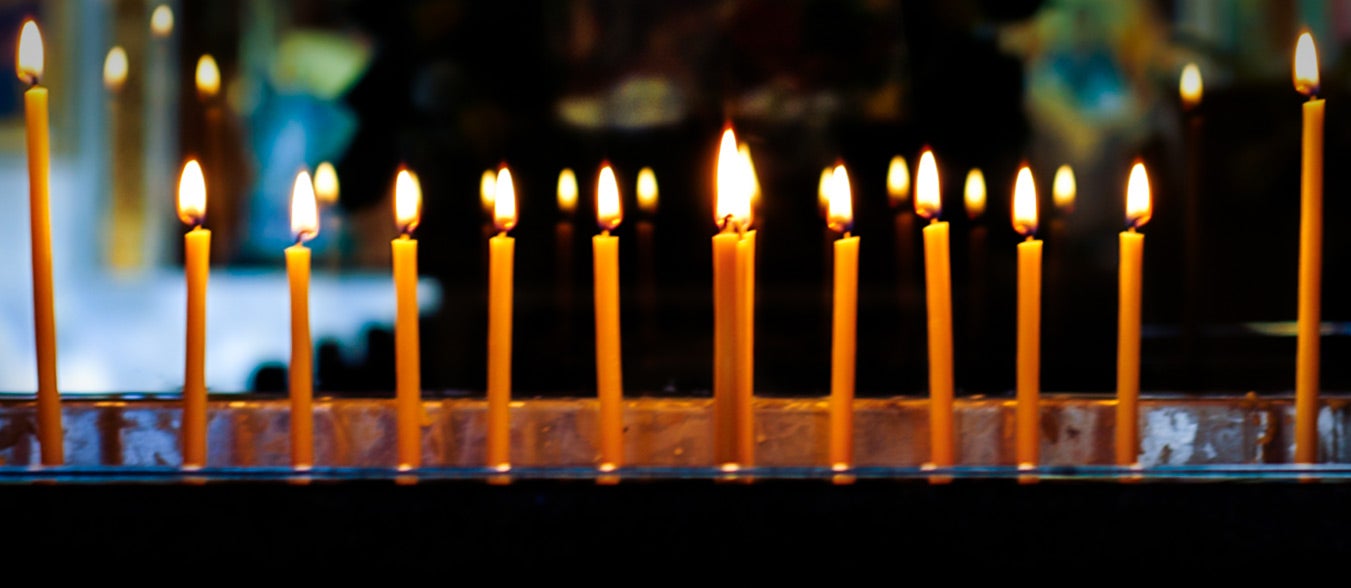What would you say to His All-Holiness Ecumenical Patriarch Bartholomew?
08/29/2025
How has His All-Holiness touched your life, inspired your faith, or strengthened your spiritual journey? If you had the opportunity to speak with him and share your thoughts, what would you say?
Patriarchal Encyclical for the New Indiction, September 1, 2025
08/28/2025
By the good pleasure of God the giver of all, we embark today upon a new ecclesiastical year, glorifying His heavenly name for the uninterrupted and bounteous fruitfulness of the initiatives of His Holy Great Church in the field of creation’s protection.
Church leaders mourn children killed in Minneapolis shooting
08/28/2025
On the morning of Aug. 27, two children aged 8 and 10 were killed and 17 others were injured in a mass shooting at Annunciation Catholic School in Minneapolis, Minn. Sophia Forchas, a 12-year-old Greek Orthodox girl, is among the children wounded and taken to Hennepin County Medical Center and is in critical condition.
"Offer yourself to God as a doer": Fr. John Chagnon on the universal appeal of prison ministry
08/28/2025
Fr. John Chagnon of St. Ignatius Antiochian Orthodox Church in Madison, Wisconsin, has had a heart for people in prison for many years, ever since he personally knew Fr. Duane Pederson, founder of Orthodox Christian Prison Ministry.
HCHC invites men to discern priestly vocation at "Be Attentive" October retreat
08/27/2025
Hellenic College Holy Cross (HCHC) invites men from all Orthodox Christian jurisdictions who may be considering the priesthood to participate in "Be Attentive: Discerning Your Priestly Vocation," taking place Oct. 2–5, 2025 on the HCHC campus.
Greek Orthodox young adults will gather in New York for the 2025 Archdiocesan District YAL Conference: National event to feature distinguished guest speakers, fellowship, and faith-centered programming
08/27/2025
With the blessing of His Eminence Archbishop Elpidophoros of America, the Archdiocesan District is grateful to announce the 2025 Young Adult League (YAL) Conference and the participation of His All-Holiness Ecumenical Patriarch Bartholomew of Constantinople.
National Forum of Greek Orthodox Church Musicians convenes for annual meeting
08/27/2025
The National Forum of Greek Orthodox Church Musicians (National Forum) convened July 3rd through the 6th for their annual meeting. A New Music Symposium was held in conjunction with the annual meeting.
Dr. James Skedros named HCHC's Director of Continuing Education Program
08/27/2025
Dr. Skedros, The Michael G. and Anastasia Cantonis Professor of Byzantine Studies, has served Holy Cross for almost thirty years in various capacities including interim president of Hellenic College and academic dean of Holy Cross. As Director of CEP, he will report to Fr. Eugen J. Pentiuc, Dean of Holy Cross, and Dr. Nicholas Ganson, Dean of Hellenic College.
Meet our Patriarch: An introduction to Ecumenical Patriarch Bartholomew
08/26/2025
Leader of the Orthodox Church's 300 million faithful worldwide, His All-Holiness Ecumenical Patriarch Bartholomew will return to the U.S. next month for an official visit. Ahead of his visit, the Orthodox Observer has prepared an introduction to His All-Holiness's life, work, and legacy.








